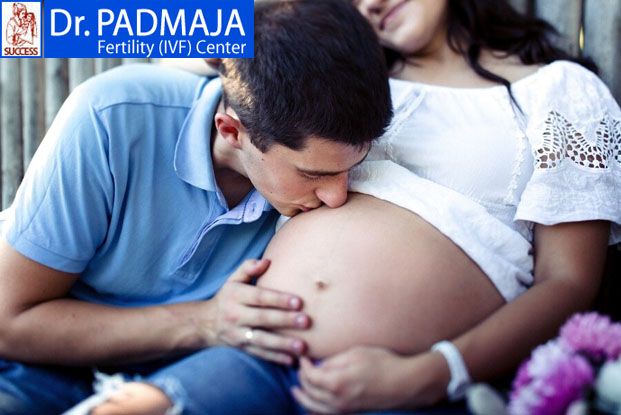Embryo transfer technology is a crucial aspect of assisted reproductive technology (ART) used in infertility treatments, particularly in vitro fertilization (IVF).
It involves the process of placing fertilized embryos into the uterus of a woman with the goal of establishing a successful pregnancy.
The following is an overview of the embryo transfer process:
IVF Procedure:
In the IVF process, eggs are retrieved from the woman’s ovaries and fertilized with sperm in a laboratory setting.
The fertilized embryos are cultured and monitored for their development.
Embryo Selection:
Embryos are typically cultured for a few days, during which time they undergo various cell divisions. Embryo quality is assessed based on factors such as cell number, symmetry, and developmental stage.
The healthiest embryos are selected for transfer.
Preparation of Uterine Lining:
Before the embryo transfer, the woman’s uterine lining is prepared to create an optimal environment for embryo implantation. This may involve hormone medications to synchronize the uterine lining with the embryo’s developmental stage.
Embryo Transfer:
The actual embryo transfer is a relatively quick and minimally invasive procedure. It’s usually performed in an outpatient setting without the need for anesthesia. A thin, flexible catheter is used to carefully insert the selected embryo(s) through the cervix and into the uterus.
Guidance and Monitoring:
Ultrasound guidance may be used during the procedure to ensure accurate placement of the embryo(s) within the uterine cavity. This helps to avoid potential complications and increases the chances of successful implantation.
Post-Transfer Rest:
After the embryo transfer, the woman may be advised to rest for a short period before resuming normal activities. Bed rest is not typically required, but some clinics recommend avoiding strenuous activities for a brief period.
Pregnancy Testing:
Approximately 10 to 14 days after the embryo transfer, a pregnancy test is conducted to determine if implantation has occurred and if the woman is pregnant.
The success of embryo transfer technology depends on various factors, including the quality of the embryos, the woman’s age, the health of the uterine lining, and overall reproductive health.
Some women may undergo a single embryo transfer, while others might opt for multiple embryo transfers based on their medical situation and the advice of their fertility specialists.
The aim is to achieve a successful pregnancy while minimizing the risk of multiple pregnancies (e.g., twins or triplets).
Embryo transfer technology has enabled countless couples and individuals to overcome fertility challenges and fulfill their dreams of becoming parents.
It’s an integral part of modern fertility treatments, offering hope to those seeking to start or expand their families.
Certainly, here’s an overview of the IVF (In Vitro Fertilization) treatment process and information specific to receiving IVF treatment in Hyderabad, India:
IVF Treatment Process:
Initial Consultation:
The process typically begins with an initial consultation with a fertility specialist. During this consultation, your medical history, fertility challenges, and potential treatment options will be discussed.
Ovarian Stimulation:
In IVF, the woman’s ovaries are stimulated using hormonal medications to produce multiple mature eggs. Ultrasound and hormone tests are used to monitor the development of follicles (fluid-filled sacs containing eggs).
Egg Retrieval:
As eggs are deemed mature, a minor surgical procedure called egg retrieval (follicular aspiration) is performed.
This involves using a thin needle to collect the eggs from the ovaries under ultrasound guidance.
Sperm Collection:
On the same day as egg retrieval or earlier, the male partner provides a sperm sample, which is then processed and prepared for fertilization.
Fertilization:
With careful monitoring, the retrieved eggs are fertilized with sperm in a laboratory dish.
This can be done using conventional insemination (mixing sperm and eggs) or intracytoplasmic sperm injection (ICSI), where a single sperm is injected directly into an egg.
Embryo Culture:
The fertilized eggs, now embryos, are cultured in a controlled environment for a few days.
The embryologists monitor their development and select the healthiest embryos for transfer.
Embryo Transfer:
At this time, the selected embryos are transferred into the woman’s uterus using a thin catheter.
This is usually a painless procedure and is often guided by ultrasound.
Luteal Phase Support:
Hormonal medications may be prescribed to support the uterine lining and facilitate embryo implantation.
Pregnancy Test:
About 10-14 days after the embryo transfer, a blood test is conducted to determine if the woman is pregnant.
IVF Treatment in Hyderabad:
Hyderabad, India, is known for its advanced medical facilities and experienced fertility specialists. When considering IVF treatment in Hyderabad, here are some key points to keep in mind:
Reputed Clinics:
Hyderabad has several well-established fertility clinics and centers that offer IVF services. Research and choose a clinic with a good reputation, experienced doctors, and a track record of successful outcomes.
Affordability:
IVF treatment in Hyderabad is often more affordable compared to many Western countries, making it an attractive option for couples seeking high-quality treatment at a lower cost.
Experienced Specialists:
The city boasts a pool of experienced fertility specialists, embryologists, and support staff who are skilled in performing IVF procedures.
Comprehensive Care:
Many clinics offer comprehensive care, including counseling, diagnostic tests, and support throughout the IVF journey.
Medical Tourism:
Hyderabad is a popular destination for medical tourism, with clinics well-equipped to cater to international patients’ needs.
Language:
English is widely spoken in Hyderabad, which can facilitate effective communication between patients and medical staff.
Cultural Considerations:
When seeking IVF treatment in a new location, it’s important to consider the cultural and logistical aspects, such as local customs, accommodations, and travel arrangements.
Before proceeding with IVF treatment, it’s recommended to schedule consultations with different clinics, ask questions, discuss treatment plans, and clarify any doubts you may have. Consulting with a fertility specialist will help you determine the most suitable approach for your specific circumstances and increase your chances of a successful outcome.

